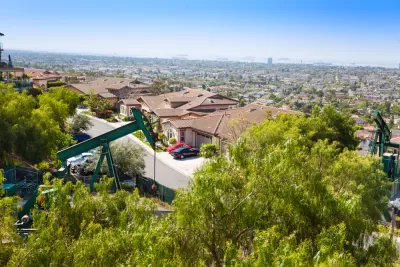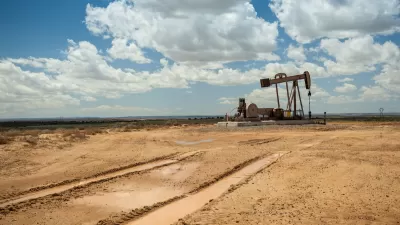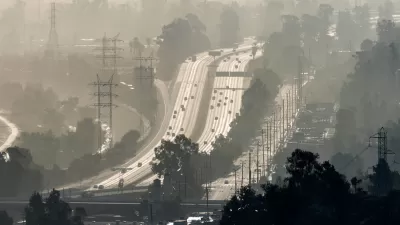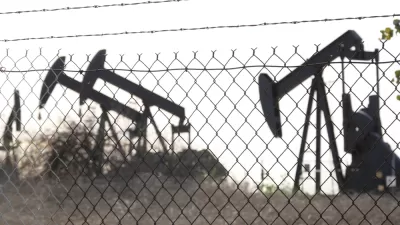The Department of Public Health recommends taking action to better protect residents from oil operations that are sometimes only a few feet from where people live, work, eat, play and study.

There are more than 5,000 oil wells scattered across Los Angeles County, with more than 3,000 of them active, and at least some of them located within a few feet of homes, restaurants, schools, parks, or other public areas.
A new report from the county Department of Public Health suggests the urban wells negatively impact the health of those who spend time near them, and recommends increasing regulation to mitigate those effects.
From KPCC:
"The study comes at a time when oil and gas companies in greater Los Angeles are under increasing pressure from environmental justice organizations who question whether it make sense to continue oil extraction in dense, urban areas — and whether the practice aligns with the state's climate goals."
For many years, there has been ample anecdotal evidence—including an incident several years ago when EPA officials became ill after touring a site—that living near the wells causes "nose bleeds, headaches and difficulty breathing," but officially studying the issue has been challenging because it's difficult to determine what is caused by air pollution from the wells, and what is caused by air pollution from everything else.
A recent study from Occidental, however, found "heightened rates of asthma in densely populated Los Angeles neighborhoods located near active oil-development sites."
And, according to KPCC, "the City of Los Angeles is currently studying the public health benefits and economic consequences of phasing out oil wells around schools, houses and other public places."
"Uduak-Joe Ntuk, the city’s petroleum administrator, said he would use the county’s report in his analysis, but had no word on when it would be completed."
FULL STORY: LA County isn’t doing enough to protect people living near oil wells, study says

Alabama: Trump Terminates Settlements for Black Communities Harmed By Raw Sewage
Trump deemed the landmark civil rights agreement “illegal DEI and environmental justice policy.”

Planetizen Federal Action Tracker
A weekly monitor of how Trump’s orders and actions are impacting planners and planning in America.

The 120 Year Old Tiny Home Villages That Sheltered San Francisco’s Earthquake Refugees
More than a century ago, San Francisco mobilized to house thousands of residents displaced by the 1906 earthquake. Could their strategy offer a model for the present?

In Both Crashes and Crime, Public Transportation is Far Safer than Driving
Contrary to popular assumptions, public transportation has far lower crash and crime rates than automobile travel. For safer communities, improve and encourage transit travel.

Report: Zoning Reforms Should Complement Nashville’s Ambitious Transit Plan
Without reform, restrictive zoning codes will limit the impact of the city’s planned transit expansion and could exclude some of the residents who depend on transit the most.

Judge Orders Release of Frozen IRA, IIJA Funding
The decision is a victory for environmental groups who charged that freezing funds for critical infrastructure and disaster response programs caused “real and irreparable harm” to communities.
Urban Design for Planners 1: Software Tools
This six-course series explores essential urban design concepts using open source software and equips planners with the tools they need to participate fully in the urban design process.
Planning for Universal Design
Learn the tools for implementing Universal Design in planning regulations.
Clanton & Associates, Inc.
Jessamine County Fiscal Court
Institute for Housing and Urban Development Studies (IHS)
City of Grandview
Harvard GSD Executive Education
Toledo-Lucas County Plan Commissions
Salt Lake City
NYU Wagner Graduate School of Public Service





























